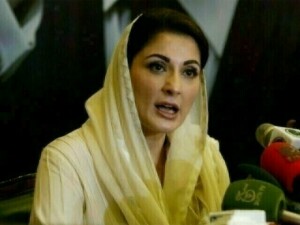ISLAMABAD: Uzbekistan has reportedly refused to enter into Preferential Trade Agreement with Pakistan (PTA) with present rates of Regulatory Duties (RDs) and Additional Customs Duties (ACDs), well-informed sources told Business Recorder.
This was revealed at a recent meeting of Tariff Policy Board (TBP) presided over by Advisor to Prime Minister on Commerce and Investment, Abdul Razak Dawood. The meeting discussed different proposals presented for tariff rationalisation.
The Tariff Policy Centre (TPC) shared individual proposals received from various sectors, seeking further directions. The Joint Secretary, FT-II, Wing apprised the members that FT-II Wing was negotiating a Preferential Trade Agreement (PTA) with Uzbekistan.
During the course of negotiations, the Uzbek side was of the view that scope of the proposed PTA should also cover reduction of ACD and RD on multiple tariffs lines, as according to them, the CD rates were on lower side but Pakistan had levied high RDs and ACDs.
They said in case, reduction of ACD and RD rates was not included in the PTA, then the very purpose of the PTA would not be achieved and it would be difficult for them to enter into PTA with Pakistan.
Chairperson, National Tariff Commission (NTC) Rubina Athar shared the list of items required reduction of CD, ACD and RD. The Joint Secretary, Tariff Policy stated that the commitment to exempt or reduce ACD and RD under PTA/FTA could have huge repercussions on the domestic industry and on the existing PTAs/FTAs signed with other trading partners.
The Secretary Commerce, Sualeh Ahmed Faruqui, suggested that the individual proposals for tariff rationalization and the matter of Pakistan Uzbekistan Preferential Trade Agreement (PUPTA) might be referred to the Sub-Committee of the TPB for further analysis. Later, the TPB decided that matter of PUPTA and individual proposals received from various sectors would be examined by the Sub-Committee of the TPB and its recommendations would be shared with the TPB in its next meeting.
Chairperson, NTC noted that after the approval of National Tariff Policy, 2009-24, tariffs had been rationalized on more than 6000 tariff lines with the objective of the policy. She further explained that tariffs on raw materials and intermediate goods, not locally manufactured, had substantially been reduced. The Tariff Policy Centre (TPC) also conducted sectoral studies of textile, iron and steel and chemical sectors and tariff of these sectors had been rationalized in the light of the recommendations of the studies conducted by TPC.
As a result of the tariff rationalization exercise, the simple average tariff had declined in 2021 as compared to 2020. However, visible impact had not been witnessed as far as reduction of Regulatory Duty (RD) and Additional Customs Duties ACDs) were concerned.
Advisor to Prime Minister on Commerce and Investment, Abdul Razak Dawood, who presided over TPB meeting, stated that sector-wise calculation of average tariff might provide us better picture of the outcome of the tariff rationalization exercise.
Federal Minister, Mol&P, Khusro Bakhtiar added that the analysis of weighted average tariff might give the Ministry more correct insight of the impact of the tariff rationalization exercise under the ambit of NTP 2019-24.
The Chairperson, NTC, stated that the weighted average tariff and sector-wise analysis would be presented in the coming meetings of the TPB. She also shared future road map of tariff rationalization with the members of TPB. She further stated that Tariff Policy Centre (TPC) would conduct sectoral studies on logistics, iron and steel, packaging and agriculture sectors so that tariffs of aforementioned sectors could be rationalized in the light of the recommendations of the said studies.
The members of TPB appreciated the work carried out by the TPC and directed to initiate sectoral studies of agriculture, iron & steel, packaging and logistic sectors so that tariffs of these sectors could be rationalized.
The Joint Secretary, Tariff Policy shared the recommendations of the Sub- Committee of the TPB on tariff rationalization of the auto sector. The Additional Secretary, Ministry of Industries and Production (Mol&P) stated that as per request of Mol&P, revised agenda on auto sector had been included in the meeting of the TPB; therefore, revised proposals might be discussed by the TPB.
Thereafter, the Additional Secretary, Mol&P stated that in order to curtail widening Current Account Deficit (CAD) and to save much needed foreign exchange, the TPB might impose 50% RD on import of EVs (CBU) of more than 50 Kwh battery pack and RD on import of Hybrid Vehicles (CBU) of 1501cc to 1800cc vehicles might be increased from 15% to 50%. He further proposed that RD might be increased from 15% to 50% on import of CBU (Complete built up, or normal gasoline vehicle) and Federal Excise Duty (FED) on locally manufactured Cars/SUVs of 1501cc and above vehicles might be increased from existing 5% to 10%.
Secretary Commerce stated that importance of Pakistan trade relations with European Union and United States could hardly be denied. In the budget, certain incentives were given on import of EVs and CBUs. The reduction of import duty sent a positive signal to Pakistan trade partners in the developed countries. Therefore, reversal of policy at this stage was not a viable policy intervention. He also stated that in case TPB decided to impose RD, it should be in sync with the pre-budget tariffs on EVs. He further stated that the government should also take into account the impact of EVs on environment. Moreover, rationale behind the limited time reduction of tariff was to help in building necessary infrastructure of EVs in the country. As such sudden reversal in policy was not feasible.
The Additional Secretary, Ministry of Commerce also stated that import data for the current year in comparison with the last year did not show an abnormal surge in imports of EVs. The Joint Secretary, (Tariff Policy) further stated that RD on EVs might not be defined in terms of battery capacity as it would discourage the import of EVs for commercial purposes. He further stated that RDs on import of taxies, buses and other public transport vehicles might not be levied.
The Minister for Industries and Production stated that these difficult decisions were required to be taken keeping in view the current economic scenario of the country.
After deliberation on the proposal of MoI&P regarding imposition of RD on import of EVs, hybrid vehicles and normal gasoline vehicles, the TPB decided to impose: (i) 27 per cent RD on import of EVs or more than 50 Kwh battery pack excluding commercial buses and trucks ; (ii) RD on import of hybrid vehicles in CBU condition, of 1501 cc to 18 00 cc, would be increased from 15 to 50 per cent; (iii) RD on import of vehicles in CBU condition ( conventional engine) would be increased from 15 per cent to 50 per cent; and (iv) matter regarding increase in FED rate from current 5 per cent to 10 per cent on local assemblers would be referred to the FBR for further necessary action accordingly.
Due to paucity of time, agenda item pertaining to Technical Textile was deferred by the members of TPB. The Chairperson, NTC shared the Imports Monitoring Mechanism application, developed by the technical expert of NTC, with the members of TPB. The application was user friendly and could be used on mobile phones as well. Different factors were taken into account like currency rates while giving monthly imports projection.
The data could be sorted by using trade indicators, such as imports by different trading partners and products. The Chair appreciated the work of the technical expert of NTC with the suggestions that further improvement could be made as per requirement of the industry.
Copyright Business Recorder, 2021






















Comments
Comments are closed.